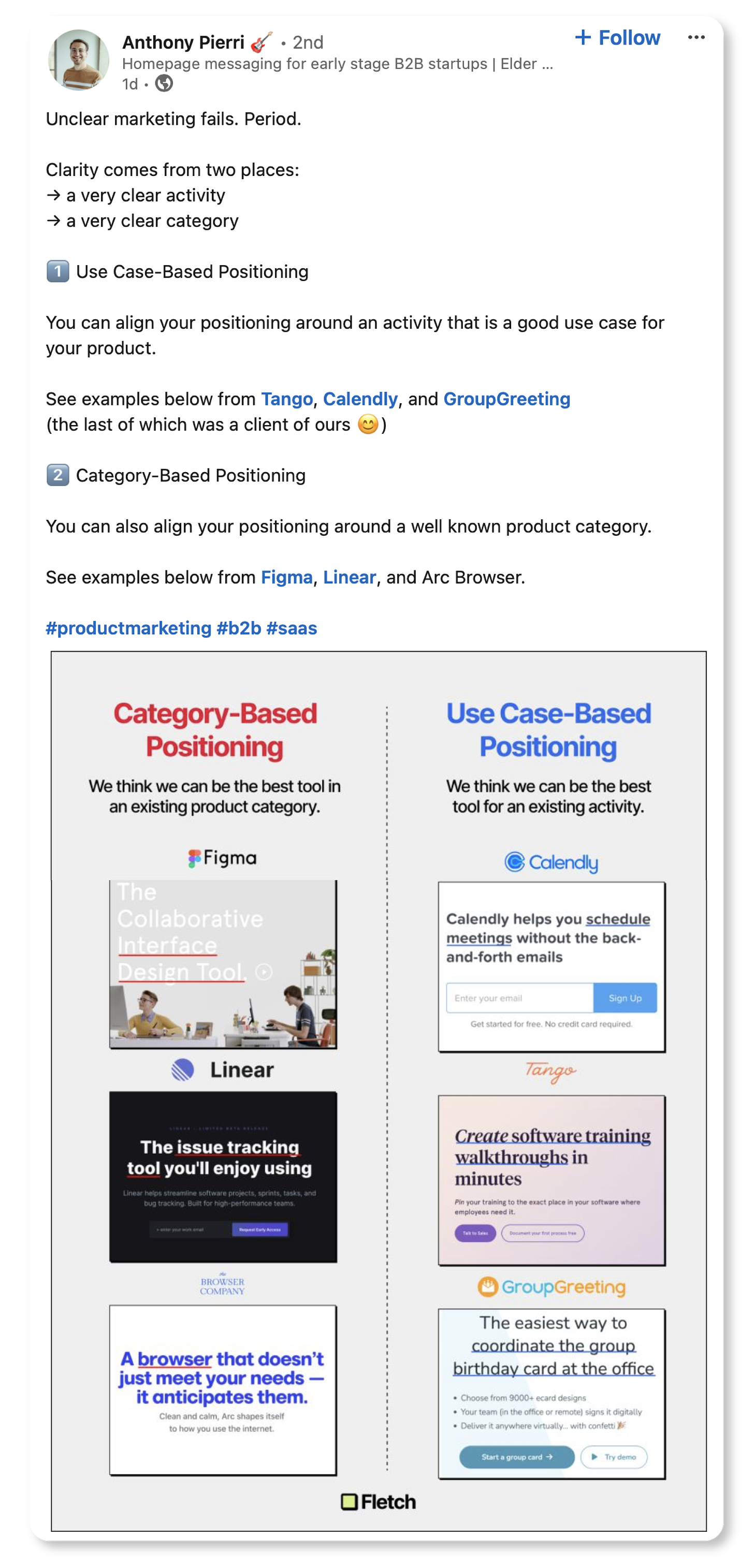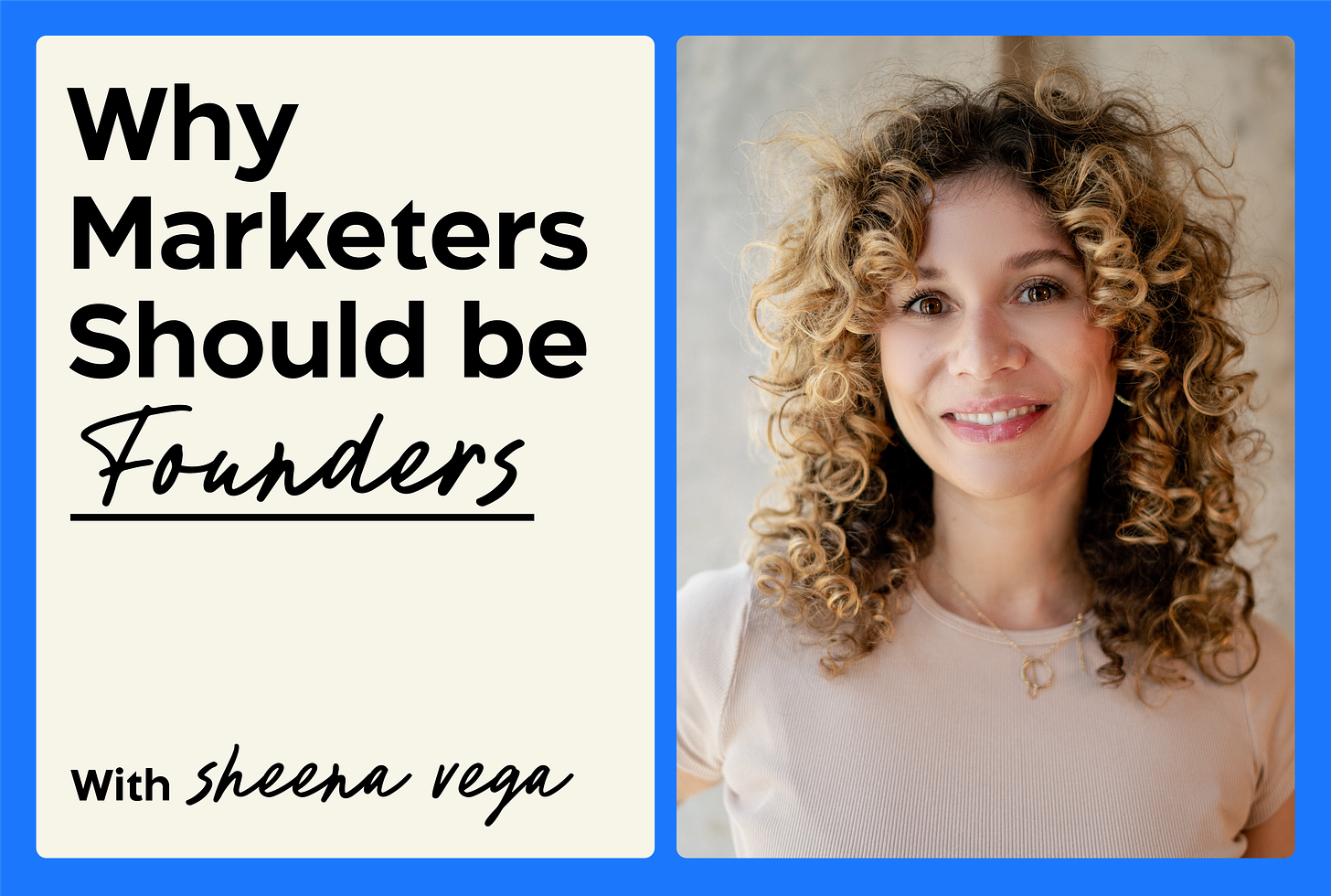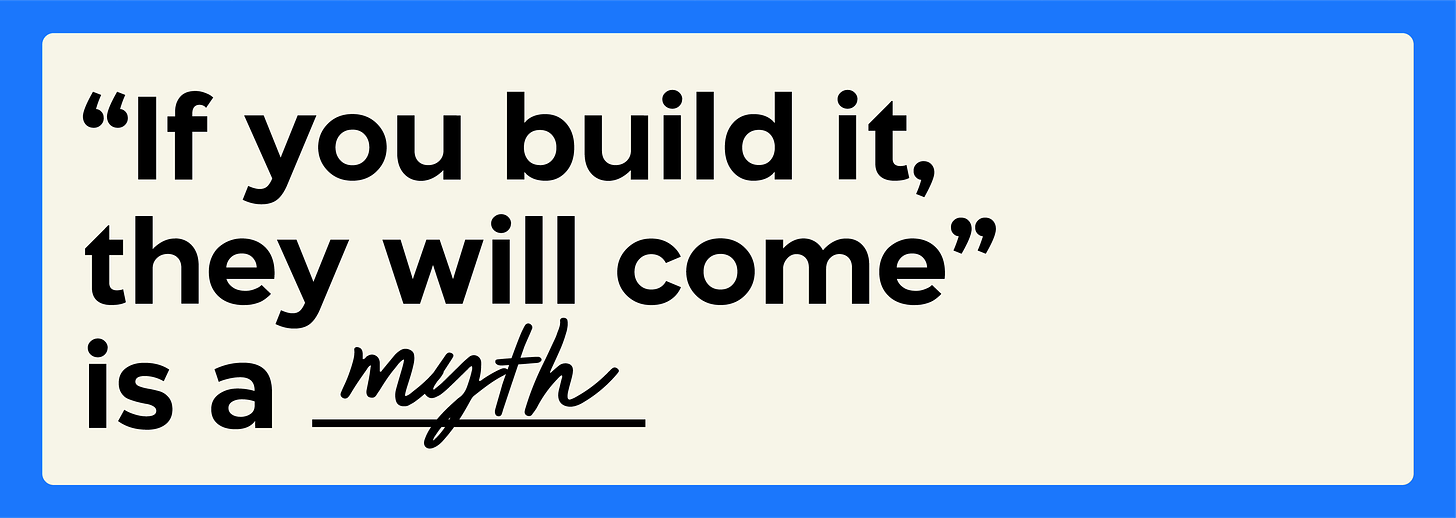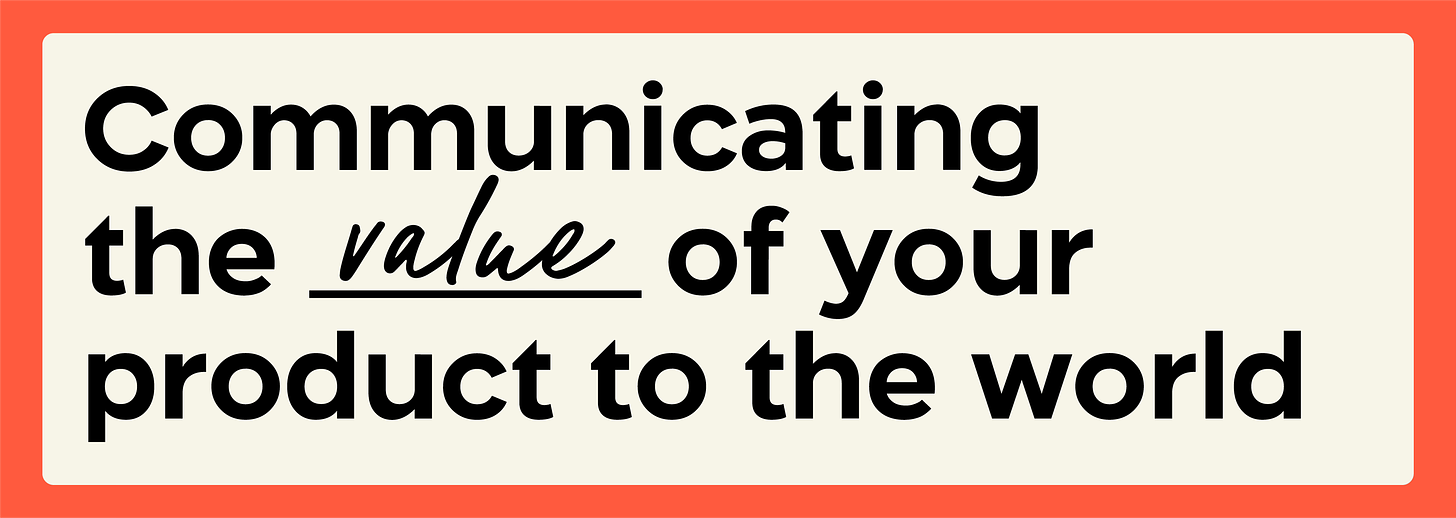Inside Olivine #29
💡 Why marketers should be founders: We may not write code, but we’ve got a long list of other crucial skills by Sheena Vega
Hey, it’s me again. I’m still out here in Brooklyn, enjoying summer and dancing my heart out; come join me! Dancing decreases your chances of dementia and increases longevity. And if that isn’t enough, a recent study found that it’s cooler and sexier than Pickleball ( jk, I made that last part up, lol).
Intro:
A few weeks ago, I had a great chat with Rae Lambert, Co-Founder of Olivine, for an upcoming podcast episode. We talked about River, an in-person events and social platform company Rae started last year. As we delved into the ups and downs of building a product, finding market fit, launching a startup, and pitching investors, Rae laughed and said, “And this is why I think marketers should be founders!”
In the fast-paced, competitive landscape of tech startups, founders play a critical role in steering a company toward success. Traditionally, tech startups have favored an engineering-first mentality where technical skills and coding take center stage, often overshadowing the importance of other departments like marketing and sales.
We’re here to make the case that while coding skills are valuable, they’re not enough to make a successful founder. And these days, they may not even be a necessity. What is a necessity is being a ‘builder founder.’ Jason Calcanis calls these people those who can get stuff done and get to revenue fast. We have another name for them: marketers.
Having a clear strategic vision, storytelling abilities, and the skill to effectively communicate what you’re building and why it matters are just as essential. These qualities are crucial for building awareness, attracting investors, and gaining customers. Without them, even the best product could go unnoticed. Or worse, people might know about your product but not be convinced enough to care.
In this newsletter, we’ll explore why marketers make great founders and why the traditional engineering-first mentality isn’t what will get us our future tech unicorns. But first, let’s talk about why the whole code-centric approach doesn’t always work.
“If you build it, they will come” is a myth
If a product is created with the assumption that investors and customers will just magically find it on GitHub, will it make a splash in the market? Probably not.
But what if the coding is exceptional? Sorry, still no. No one will care because the value of the product won't be clearly communicated. Effective messaging that speaks directly to people's pain points and needs is key – and that’s where marketers win.
For too long, we’ve assumed that to be a tech founder, you had to be technical and able to write code. From our experience working with engineers, many believe that marketing is easy to pick up. They underestimate the skill it takes to do marketing well. On the other hand, marketers are quick to admit that learning code seems challenging. This mindset explains why there are more technical founders than marketers turned founders. But the world is shifting. With tools like Bubble and Zapier, marketers can create reliable prototypes without needing to code.
While there’s a learning curve with these platforms, they make it possible for non-technical people to build functional prototypes that are good enough to use early on.
Website and product templates are also amazing these days, offering lots of built-in functionality. Many developers don’t realize this yet. For example, the squiggly text on River’s site? It's just a Squarespace feature, but Rae’s dev team thought she coded it herself!
If you’re ever stuck, there are a ton of online communities where people help each other figure out tools, and hiring someone from upwork is an inexpensive option.
Knowing how to use the resources and community around you is a solid starting point. The next level is effectively communicating the value of your product to a core audience.
Rae’s experience at Miami Hack Week is a perfect example. With 80 project submissions and 500 attendees, many top projects were impressive but difficult to understand. They spent all their time building prototypes without considering how to explain their value. Rae’s team, made up of two technical members and herself, won first place and the award for Best Use of Open AI. The key wasn’t just their powerful prototype but also Rae’s ability to make it relatable and valuable to the audience. Armed with a polished slide deck, branded t-shirts, and an engaging demo booth, Rae ensured everyone knew exactly what their project was and why it mattered.
Storytelling, brand, and communicating the value of your product to the world
Building a great product is only half the battle. You also have to be able to tell a captivating story and showcase its worth to the world.
Engineers might be able to build a product, but being able to communicate its value to the right people at the right time is crucial.
A compelling story is essential not just for attracting customers but also for recruiting the talent needed to build your project. At the start of your business, you need to inspire engineers and other key team members to join your mission. They need to believe in your vision and understand the impact your product will have. Without a strong narrative, even the most talented engineers might pass on the opportunity to be a part of your journey.
Relationships and personal brand matter
Marketing for River started well before the product itself was built. Even before any coding began, River had an audience. By manually running All-In Meetups, Rae gained a deep understanding of the market’s problems. That hands-on approach, doing everything manually behind the scenes, informed what was needed to build. Being a deep user of her own product meant she felt the bugs and shortcomings long before customers.
This proactive approach to audience building highlights the importance of personal branding and meaningful relationships, which many people underestimate. Marketers inherently get this. From the story of being “Brunch Girl” to organizing All-In Meetups and navigating Twitter fiascos to build relationships with investors, it’s clear that connecting with others is key.
Remember – reaching out to high-profile individuals is an art. Rae used Twitter, LinkedIn and even attended events to get noticed by big investors. It’s not just about the initial contact; it’s about following up and ensuring people know what you do. They might know your company but not realize it’s YOUR company.
For marketers, leveraging personal brand and relationships is second nature. Success hinges not only the product you build but also on the connections you make and the trust you establish.
Marketers have a treasure trove of crucial skills and the tools to help fill the gaps, making us well-equipped to be founders.
Let’s end with our top eight reasons why marketers are ideal for founding startups.
Whether personal or professional, audience building is crucial during a product launch. For example, many experienced marketers have massive LinkedIn networks that can be activated at a moment’s notice to promote a product, drive initial interest, and create credibility that developers might lack.
Most technical founders aren’t social community builders, so they wouldn’t notice the gap in the market that needs filling (like River is doing). Further proof: most innovation reaches developers first because they build for themselves. By being able to identify market gaps, marketers can innovate in areas that aren’t immediately obvious to technical founders.
Skills in using tools like HubSpot or Salesforce to manage and nurture leads through the marketing and sales process are not easy. And the knowledge to ensure every part of the customer journey is optimized is something many engineers aren’t familiar with – but marketers are!
Value propositions shift based on who you’re talking to, and marketers understand this better than anyone. Tailor your pitch to the audience to ensure your message resonates and drives the desired action.
Whether your audience is investors, potential hires, customers, or end users, effective storytelling and vision casting are essential. Especially when pitching to VCs, Marketers can create a vision that not only highlights the product’s features but also its impact on the market and its potential for growth, making it far more attractive to investors.
We understand how to use content marketing and social media to build brand awareness while simultaneously running targeted ad campaigns to drive immediate sales.
When product-led growth is done right, it drives user-generated content and creates a flywheel where customers refer more customers. Product can’t just be great; mechanisms must be built to drive action. For example, Dropbox’s early growth was driven by its referral program – a strategy often championed by marketers to leverage existing users for growth.
We all know how important it is to meticulously test a website to ensure every CTA button works and leads to the intended action, avoiding scenarios where potential customers encounter dead ends due to overlooked technical details. We can’t say the same for engineers. Just because a website has fancy animations, if the call to action is a dead end, so is your product.
Rather than just shipping a feature and then finding out if people like it, marketers are writing based on market feedback – and iterating often! Using tools like surveys and social media, we gather customer feedback to refine messaging and ensure it resonates.
River’s early mistake was positioning the platform solely for podcasts. While podcasters were the first customers, the platform gained traction faster than expected, attracting a diverse range of users. Now, more than half of River’s customers aren’t podcasters, yet they’re still perceived as a podcast-only platform. It’s like saying Google Calendar can only be used for VC meetings.
River has adapted and continuously revisits and adjusts their messaging to better reflect their evolving customer base and market needs.
Marketers bring a unique set of skills that make them incredible founders. They know how to build and engage audiences, craft compelling stories, and ensure every step of the customer journey is seamless. As the startup world continues to evolve, the ability to adapt, innovate, and connect with people will be what sets successful companies apart. Remember, it’s not just about having a great product—it’s about telling the story and building relationships that make people care.
Top LinkedIn post

Anthony Pierri shares valuable insights on the importance of clear marketing. Check his examples of use case-based and category-based positioning.
Fresh Finds
Tool I love: Since we mentioned it above, check out Bubble.io, the full-stack, no-code app builder for everyone.
Shallow dive: Tamara Grominsky shares strategies, skills, and frameworks you need to elevate your product marketing career in her PMM Camp newsletter.
Deep dive: Also from Tamara: Day Camp, a virtual summer camp-style event designed exclusively for product marketers to identify your ideal customer profile and build a cohesive marketing strategy.
Inside Olivine
Content gems
Client happenings
Momentum Raises $13M Series A. Huge congrats! 🎉
Floodbase launches national flood product to help relief and recovery in continental U.S.
Job Openings
Twilio is hiring a Product Marketing Manager
Consensys is hiring a Lead Product Marketing Manager
Doximity is hiring a Product Marketing Manager


















Love this take 👏🏻